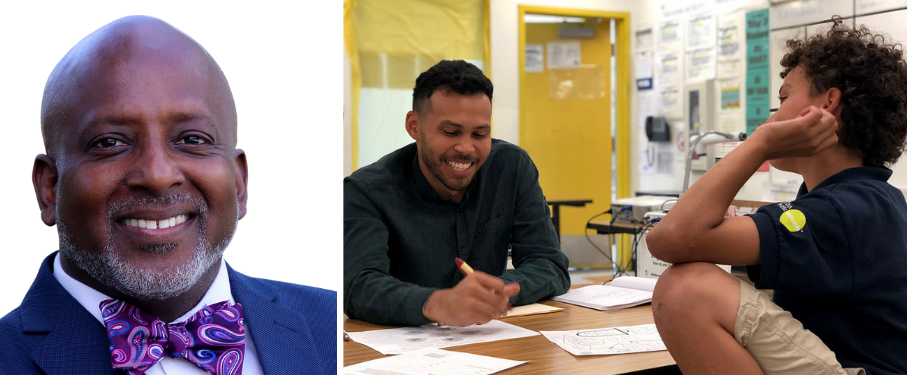
Dr. Darin Earley Notes that Representation Leads to Improved Outcomes and Better Experiences for All Students
As a former secondary-school administrator and classroom teacher who worked for the Los Angeles Unified School District (LAUSD) for nearly 20 years, Darin Earley, Ed.D., saw first-hand how a dearth of Black male teachers affected the district’s diverse student body. “There’s an old saying of, ‘if you can’t see it, you can’t be it,’” says Earley. “Not having educators who look like them deprives young Black students of the role models that are critical in their educational journeys. And it renders Black men less visible to students of all races, which often leads to those students discounting and dehumanizing them, as well as stereotypes of Black men taking hold.”
Now, as director of LMU’s Family of Schools (FOS) for over a decade, Dr. Earley engages FOS’s 16 partner public, charter, and Catholic schools on all matters related to diversity, equity, and inclusion (DEI). Along with support measures such as curriculum design, staff and faculty training, and engaging parent communities on discussions about race, he’s also partnering with LAUSD to help them increase the number of Black male teachers within their ranks.
A key component of this work, Dr. Earley says, is listening to the Black male educators who are in classrooms working with young people on a daily basis. To that end, in December 2020 he facilitated a focus group session for LAUSD to enable the district to gather key information about their experiences. The district will use those data to inform their goals and set metrics for the recruitment and retention of Black male teachers.
Nationwide, only 2 percent of teachers are Black men, and studies show that having Black male teachers in classrooms is linked to a decrease in school suspensions and an increase in educational achievement for Black students. With students of color expected to make up some 56 percent of all students in the U.S. by 2024, the imbalance is far out of step with current demographics. “By supporting Black men as teachers,” says Earley, “we intend to not just dismantle stereotypes and provide visible role models for the Black community, but also to foster equity and improve the school experience for all students, teachers, and learning communities.”